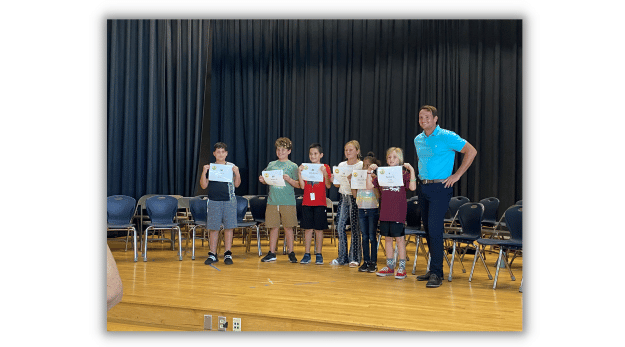Patrick Melton, a teacher at Key Largo Middle School in Florida, has developed effective strategies for promoting teamwork on and off the soccer field. He believes in using a blend of traditional teaching methods and cutting-edge technology to create a fun and engaging learning environment. With his extensive soccer coaching experience, Patrick is equally committed to helping students develop teamwork and individual playing skills on the field. His focus on empowering students and promoting collaboration and inclusivity has earned him recognition within the school district, including the New Teacher of the Year award in his first year at Key Largo School.
Melton has helped his students develop strong bonds and succeed in academics and athletics by emphasizing communication, trust, and a shared sense of purpose.
Learn more about his approach and how to apply it to your classroom or team.
Create a Positive Classroom Environment.
One of the key ways to promote teamwork in your students is to create a positive classroom environment. A positive environment fosters community and belonging, where students feel comfortable sharing their thoughts and ideas.
Encourage open communication and active listening, and ensure everyone feels valued and respected. Students who feel part of a supportive team are more likely to work together and achieve their goals.
Encourage Communication and Collaboration.
Communication and collaboration are essential components of teamwork, and it’s important to encourage both in your students. Provide group work opportunities and assign projects requiring students to work together and communicate effectively.
Please encourage students to share their ideas and perspectives, and make sure that everyone has a chance to contribute. By fostering a collaborative environment, you can help your students develop the skills they need to work effectively as part of a team.
Set Clear Goals and Expectations.
Patrick Melton promotes teamwork in his students by setting clear goals and expectations. Students can concentrate their efforts and collaborate effectively by outlining the expected contributions of each student and the common purpose that the group is working towards. This approach also minimizes misunderstandings and conflicts arising when everyone needs to be on the same page.
Communicate these goals and expectations clearly and regularly, and encourage students to ask questions and provide feedback.
Provide Opportunities for Leadership.
Another effective way to promote teamwork in students is to provide leadership opportunities. By giving students a chance to take on leadership roles within the group, they can develop essential skills such as communication, problem-solving, and decision-making.
Leadership also helps to build trust and respect among group members as they see each other’s strengths and abilities in action.
Encourage students to take turns in leadership roles and provide support and guidance as needed.

Celebrate Successes and Learn from Failures.
Patrick Melton believes that celebrating successes and learning from failures is crucial to promoting student teamwork.
When a team achieves a goal or completes a project, it’s essential to take the time to acknowledge and celebrate their success. This helps to build morale and motivation within the group. On the other hand, when a team experiences a setback or failure, it’s essential to use it as a learning opportunity.
Encourage students to reflect on what went wrong and how they can improve. This helps to build resilience and a growth mindset within the group.
Final Thoughts
In conclusion, Patrick Melton’s approach to promoting teamwork in the classroom and on the soccer field has proven effective. Melton has created a positive learning environment that encourages collaboration and inclusivity by emphasizing communication, trust, shared goals, and leadership opportunities.
Celebrating successes and learning from failures is also essential to his approach. By implementing these strategies in your classroom or team, you can help your students develop the skills they need to work effectively as part of a team, both now and in the future.


